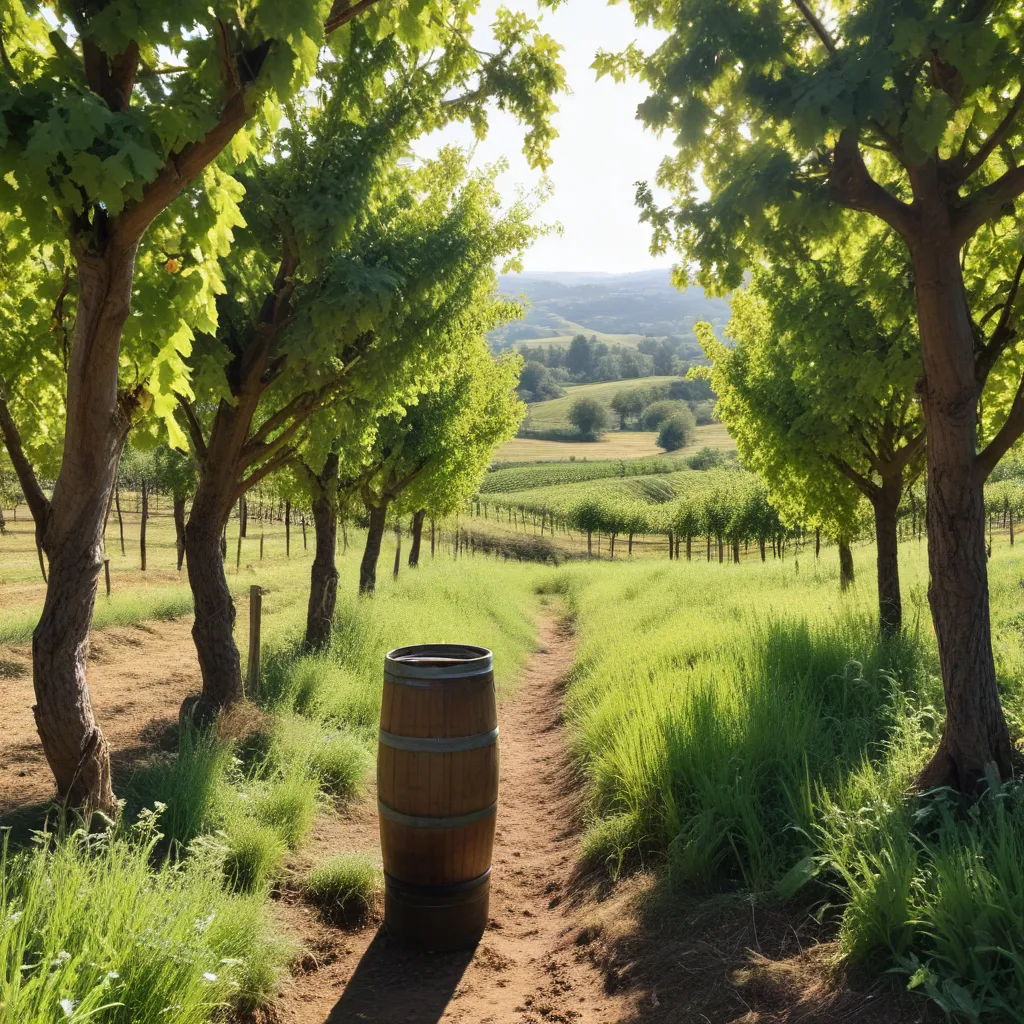
In the lush landscapes where vines intertwine with celestial rhythms and cosmic energies, a unique approach to winemaking takes root – Biodynamic Winemaking. Beyond the conventional realms of viticulture, this holistic practice weaves together agricultural wisdom, spiritual philosophy, and ecological harmony. Guided by the principles set forth by Rudolf Steiner, Biodynamic Winemaking emerges as an intriguing journey that transcends organic farming, aiming for a harmonious coexistence between the earth, the vine, and the cosmos.
Principles of Biodynamic Agriculture
Biodynamic viticulture stands at the intersection of agricultural science and cosmic harmony. This holistic approach extends beyond conventional farming, embracing a philosophy that views the vineyard as a self-sustaining ecosystem. Biodynamic farmers prioritize the use of natural and organic materials, steering away from synthetic pesticides and fertilizers. Cover cropping, companion planting, and the integration of animals into the vineyard are integral components, fostering biodiversity and creating a balanced microcosm.
Central to Biodynamic Viticulture is the adherence to a celestial guide – the Biodynamic Calendar. Rooted in lunar and cosmic cycles, this calendar dictates optimal times for various vineyard activities. Planting, pruning, and harvesting align with lunar phases, harnessing the gravitational forces that influence sap flow and growth patterns. The cosmic dance between celestial bodies becomes a rhythm that orchestrates the vineyard’s vitality, enhancing fruit quality and vine resilience.
The foundation of Biodynamic Viticulture rests in the soil – a living, breathing entity that sustains the vine. Biodynamic practitioners prioritize soil health through composting, cover cropping, and the application of herbal preparations. The aim is not just fertility but vitality, creating a rich, diverse soil ecosystem. Biodiversity is championed, as vineyards become habitats for a myriad of organisms, from beneficial insects to microorganisms, contributing to a balanced and resilient terroir.
Connecting with Nature in Winemaking
Biodynamic principles extend seamlessly from the vineyard to the cellar, where winemakers embrace a holistic approach to crafting exceptional wines. The key tenet is to maintain the vitality of the grape and the terroir it embodies. In the cellar, biodynamic winemakers prioritize a non-invasive, thoughtful approach that respects the inherent qualities of the fruit. This involves gentle handling of the grapes, minimal use of sulfites, and eschewing the need for artificial adjustments. The goal is to allow the wine to express its unique character, reflecting the synergy between the vineyard’s biodynamic vitality and the winemaker’s skill.
Natural or wild fermentation, driven by indigenous yeasts present on grape skins, is favored over the introduction of commercial yeasts. This approach allows the unique microbial terroir of the vineyard to shape the wine’s flavor profile authentically. Additionally, minimal intervention is a guiding principle; winemakers refrain from excessive filtration and manipulation, letting the wine evolve organically. This hands-off approach not only respects the integrity of the fruit but also results in wines that are vibrant, expressive, and reflective of their terroir.
Benefits of Biodynamic Winemaking
Biodynamic certification serves as a testament to a winery’s commitment to the highest standards of sustainable and holistic viticulture. Organizations like Demeter International oversee the certification process, ensuring that winemakers adhere to the rigorous principles of biodynamics. Certification acts as a symbol of authenticity, assuring consumers that the wine is a product of ethical and sustainable viticulture.
Biodynamic wines often exhibit unique characteristics that distinguish them from conventionally produced wines. The emphasis on biodiversity and soil health in biodynamic viticulture can contribute to a more vibrant expression of terroir. These wines may showcase a greater depth of flavors, heightened minerality, and a nuanced aromatic profile. The holistic farming approach, which considers the entire ecosystem, aims to create a harmonious environment that allows the grapes to reflect the distinctiveness of their terroir.
Renowned biodynamic wineries stand as beacons of sustainability and excellence, demonstrating a commitment to both environmental harmony and exceptional wine production. Among these, Domaine de la Romanée-Conti in Burgundy, France, and Seresin Estate in Marlborough, New Zealand, have garnered acclaim for their biodynamic practices and the exceptional quality of their wines.
Challenges and Criticisms
The debate surrounding biodynamics revolves around the clash between scientific rationale and the spiritual or philosophical underpinnings of the practice. From a scientific standpoint, critics argue that certain biodynamic principles lack empirical evidence, challenging the validity of practices like planting and harvesting based on lunar cycles. However, proponents of biodynamics contend that the holistic approach contributes to soil health, biodiversity, and overall vineyard vitality. The tension between these perspectives sparks ongoing discussions about the measurable impact of biodynamics on grape quality and environmental sustainability.
Biodynamic winemakers also encounter specific challenges in their pursuit of sustainable and holistic viticulture. Navigating these hurdles requires dedication, innovation, and a continuous commitment to the principles of biodynamics. As the movement gains traction, winemakers are actively addressing criticisms and refining their practices for a more sustainable and resilient future.
As the embrace of biodynamic winemaking continues to grow, the future outlook for this holistic approach appears promising and influential in shaping the wine industry. Winemakers, inspired by the principles of sustainability, ethical farming, and a deep connection to the land, are actively integrating biodynamics into their practices. The unique characteristics and flavors imparted by biodynamic wines, coupled with a dedication to preserving terroir, position them as not only a trend but a long-lasting and meaningful contribution to the world of viticulture.
At Wine Garden Inn, we are excited to explore the world of biodynamic winemaking and share its story with our guests. Through our commitment to sourcing and showcasing exceptional biodynamic wines, we aim to foster a deeper appreciation for the harmonious relationship between the vine, the land, and the cosmos. Join us on this journey as we savor the fruits of biodynamic viticulture and the rhythms of nature that they embody.
